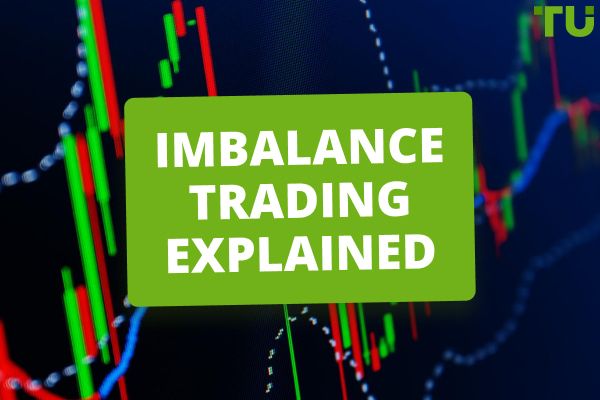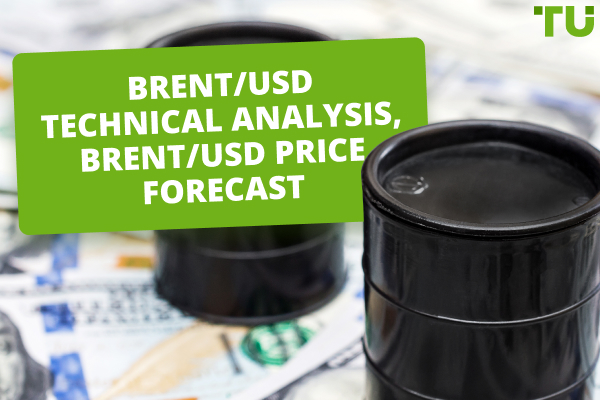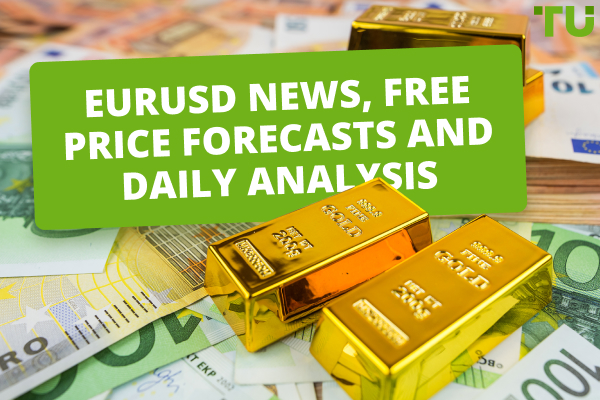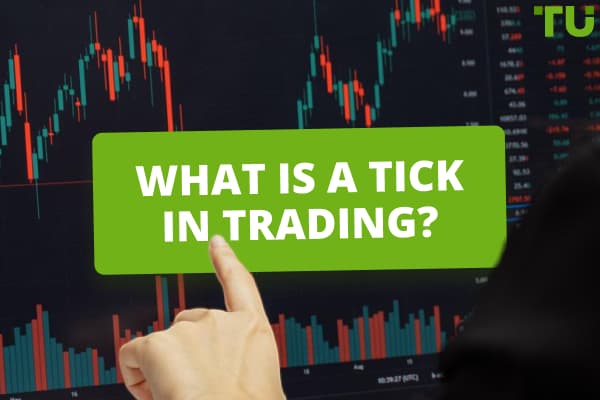Forex vs CFD Trading - Differences and Similarities
Forex is an international foreign exchange market where trading is carried out in real currency assets. CFDs are contracts for difference trading; transaction participants do not deal with real assets.
The foreign exchange market, also known as “Forex”, and contracts for difference, or CFDs, have gained significant popularity in recent years. Advances in fintech have made it possible for everyday investors to access these complex global financial instruments from their phones or computers.
While both Forex and CFDs center around profiting from currency fluctuations and asset price movement, they diverge in their core functions. In Forex trading, one directly purchases and sells currency pairings, such as exchanging U.S. dollars for euros. With CFDs, there is no ownership of the underlying assets—traders simply wager on assets’ future prices through contracts with brokerages.
In this article, we provide an overview of Forex versus CFD trading to highlight their key similarities and differences. We explore how each platform operates, their respective advantages and disadvantages, and what factors determine whether one may be a more suitable fit given one's goals, risk tolerance, and trading experience level.
Specific differences between Forex trading and CFD trading
The following table summarizes the key differences between Forex trading and CFD trading:
| Feature | Forex trading | CFD trading |
|---|---|---|
|
Asset |
Currencies |
Underlying assets, such as stocks, commodities, or indices |
|
Ownership |
You own the underlying asset |
You do not own the underlying asset |
|
Leverage |
High leverage available |
High leverage available |
|
Spreads |
Narrow spreads |
Wider spreads |
|
Commissions |
Commissions may be charged |
Commissions are typically not charged |
|
Taxes |
Taxes may apply |
Taxes may apply |
Similarities Between CFDs and Forex
While CFDs and Forex trading certainly have their differences, they share some core similarities that appeal to active traders and speculators.
Both offer leverage and flexible lot sizes to accommodate varying account sizes. Traders can use leverage to establish larger positions with less upfront capital. Though leverage also compounds losses when markets move against you.
CFDs and Forex can be traded on margin, only requiring a small margin deposit relative to the full value of trades. Margin requirements are generally around 0.5% to 5% of the position size. This frees up capital for other investment opportunities.
These markets rely heavily on technical analysis using chart patterns, indicators, and other predictive tools to forecast price action. Fundamental drivers around events, data releases, interest rates, and geopolitics also impact prices.
Trading is accessible through user-friendly online platforms and mobile apps. Advanced platforms even support automated trading via bots and Expert Advisors (EAs) when platform-compatible.
Both CFD and Forex brokers offer competitive spreads, guaranteed stop losses, and zero commissions on raw market spreads. Many are well-capitalized to offer client fund segregation and insurance against broker insolvency.
In summary, while different in their assets, CFD and Forex trading share the perks of leverage, flexible position-sizing, technical trading, robust trading platforms, and institutional-grade financial safeguards. These similarities make them appealing avenues for active traders looking to capitalize on global market volatility across different asset
How Forex Trading Works
Forex trading follows a specific process:
-
Choose a Currency Pair - Traders select from major pairings like EUR/USD, GBP/USD, USD/JPY.
-
Open a Position - Decide whether to buy (go long) or sell (go short) the base currency at the current exchange rate.
-
Use Leverage - Brokers offer up to 3000:1 leverage, allowing control over large positions with less capital.
-
Monitor Rates - Keep watch on economic news and events impacting exchange rates between currencies on price charts.
-
Close the Position - Place an order to sell purchased currencies or buy back sold currencies at the current exchange rate.
-
Settle Profits/Losses - Gains are profits subtracted from account balance automatically by Forex brokers upon closing.
-
Monitor Open Positions - Check regularly due to the 24/5 Forex market for risk management.
Advantages of Forex trading
👍 Forex trading offers a number of advantages, including:
• High liquidity: The Forex market is the most liquid market in the world, which means that you can easily enter and exit positions.
• Global reach: The Forex market is open 24 hours a day, 5 days a week, which gives you the opportunity to trade from anywhere in the world.
• Low fees: Commissions are typically low in the Forex market.
Disadvantages of Forex trading
👎 Forex trading also has some disadvantages, including:
• High risk: The Forex market is a volatile market, which means that you can lose money quickly.
• Leverage: Leverage can magnify your profits, but it can also magnify your losses.
• Complex trading techniques: Forex trading can be complex, and it takes time to learn how to trade effectively.
What is CFD?
You've probably picked up by now that CFD stands for "Contract for Difference" - but what does that actually mean in plain English?
Essentially, CFDs give everyday investors a way to try and profit from prices going up or down on things like stocks, currencies, commodities etc. without having to buy them outright. Which would cost a pretty penny most of the time.
Instead, you put down a small deposit and enter an agreement to speculate on the changing prices. If you bet right - you get paid the difference between the price when you started and when you finish. Bet wrong, and you pay the difference.
So in a nutshell - it's short-term punting on the ups and downs rather than a long-term stake in owning the asset itself. Kind of like sports betting for the financial markets.
Major brokerage firms offer CFDs on everything from Apple shares to wheat harvests to currency fluctuations between the Euro and Dollar. You don't ever actually own any Apple shares or wheat or Euros. Just a contract that pays out if you predict the movements correctly.
How CFD Trading Works?
Now that we understand the basic concept, let's break down the mechanics of how CFD trading is actually done. The process involves a few key steps:
-
Choose an Asset - CFDs are available on thousands of assets like stocks, currencies, commodities, indices, and more. Popular choices tend to be major global brands and currency pairs.
-
Open a Position - Using a trading platform, you select whether you think the asset will rise or fall in value. This establishes your "open" or entry price for the position.
-
Leverage your Investment - This lets you control a large position value despite using a smaller amount of your own funds.
-
Monitor the Market - Keep an eye on how the underlying asset performs. Most brokers provide live price feeds and charts to track movements.
-
Close the Position - When you're ready to lock in profits or cut losses, enter an order to close at the current market price. Your net result depends on the price change from open to close.
-
Receive Payout - Brokers will automatically settle any profits or losses in your trading account based on the price difference. No physical exchange of the asset occurs.
-
Repeat! - Now you can reinvest your funds by opening new positions. Just remember to manage risk on each trade.
Advantages of CFD trading
👍 CFD trading offers a number of advantages, including:
• Easy to trade: CFDs are a relatively easy way to trade financial markets.
• Leverage: CFDs offer high leverage, which can magnify your profits.
• Tax benefits: CFD trading may offer tax benefits in some jurisdictions.
Disadvantages of CFD trading
👎 CFD trading also has some disadvantages, including:
• High risk: CFD trading can be risky, and you can lose money quickly.
• Costs: CFDs can be expensive to trade, as brokers typically charge commissions and spreads.
• No ownership: You do not own the underlying asset when you trade CFDs.
Choice of Trading Instruments
Both Forex and CFD trading offer traders a vast array of instruments to potentially profit from.
Forex traders can select from over 50 major, minor, and exotic currency pairs that fluctuate due to economic factors. The most popular tend to involve the US dollar, euro, British pound, Japanese yen, Australian dollar, and Swiss franc.
CFDs grant exposure to an even wider selection of global markets. In addition to Forex pairs, you can trade CFDs on:
-
Individual stocks from major exchanges like the NYSE and NASDAQ. Popular picks cover tech, healthcare, financials, and more.
-
Commodities like gold, silver, oil, copper, wheat, corn based on worldwide supply and demand.
-
Stock indices tracking broader markets such as the S&P 500, FTSE 100, Nikkei 225, DAX 30.
-
Cryptocurrencies including Bitcoin, Ethereum, Litecoin, Ripple that experience high volatility.
-
Bonds and treasuries seeing interest rate fluctuations.
Having an abundance of options allows tailoring your CFD portfolio across diverse asset classes. Forex pairs remain the core instruments for most currency traders as well. The choice comes down to your preferred sectors, industries, and specialized market niches to explore.
Additional tips for choosing between Forex trading and CFD trading
Here are a few additional tips for choosing between Forex trading and CFD trading:
-
Consider your experience level: If you are a beginner, you may want to start with CFD trading, as it is a relatively easy way to learn the basics of trading.
-
Consider your risk tolerance: If you are comfortable with risk, then Forex trading may be a good option for you. However, if you are risk-averse, then CFD trading may be a better choice.
-
Consider your investment goals: If you are looking to make a long-term investment, then Forex trading may be a good option. However, if you are looking to make a short-term profit, then CFD trading may be a better choice.
Conclusion
Forex trading and CFD trading are both popular ways to trade financial markets. The best option for you will depend on your individual needs and preferences. If you are looking for a liquid, global market with low fees, then Forex trading may be a good option for you. However, if you are looking for a relatively easy way to trade financial markets with high leverage, then CFD trading may be a better choice.
FAQ
Are CFDs better than Forex?
The best option for you will depend on the following factors:
-
Experience level: If you are a beginner, CFDs may be a simpler option to start with.
-
Risk tolerance: If you are comfortable with high risk, CFDs may be a better option for earning higher profits.
-
Investment goals: If you are looking for a long-term investment, Forex may be a better option.
-
Asset type: If you want to trade a wider range of assets than just currencies, CFDs may be a better option.
If you are not sure which option is better for you, it is recommended to do your research and consult with a financial advisor.
Can I trade Forex on CFD?
CFDs on Forex offer a number of advantages, including:
-
Ease of trading: CFDs can be relatively simple to trade, even for beginner traders.
-
High leverage: CFDs allow traders to trade with less capital than traditional Forex trading.
-
Tax benefits: CFDs may offer tax benefits in some jurisdictions.
If you are considering trading CFDs on Forex, it is important to do your research and consult with a financial advisor to make sure it is the right choice for you.
Is CFD trading real or fake?
Yes, CFD trading is real. It is a legitimate way to trade financial markets, but it is important to be aware of the risks involved.
What is the difference between CFD and Forex trading?
Forex trading is the buying and selling of currencies, while CFD trading is the buying and selling of contracts that track the price of an underlying asset.
Glossary for novice traders
-
1
CFD
CFD is a contract between an investor/trader and seller that demonstrates that the trader will need to pay the price difference between the current value of the asset and its value at the time of contract to the seller.
-
2
Trading
Trading involves the act of buying and selling financial assets like stocks, currencies, or commodities with the intention of profiting from market price fluctuations. Traders employ various strategies, analysis techniques, and risk management practices to make informed decisions and optimize their chances of success in the financial markets.
-
3
Forex Trading
Forex trading, short for foreign exchange trading, is the practice of buying and selling currencies in the global foreign exchange market with the aim of profiting from fluctuations in exchange rates. Traders speculate on whether one currency will rise or fall in value relative to another currency and make trading decisions accordingly.
-
4
Leverage
Forex leverage is a tool enabling traders to control larger positions with a relatively small amount of capital, amplifying potential profits and losses based on the chosen leverage ratio.
-
5
Broker
A broker is a legal entity or individual that performs as an intermediary when making trades in the financial markets. Private investors cannot trade without a broker, since only brokers can execute trades on the exchanges.
Team that worked on the article
Alex Smith is a professional day trader for a proprietary trading firm within the foreign exchange (forex) and crypto markets. His area of expertise is day trading and swing trading within the 15min-4hr time frames for both the London and NY open.
Dr. BJ Johnson is a PhD in English Language and an editor with over 15 years of experience. He earned his degree in English Language in the U.S and the UK. In 2020, Dr. Johnson joined the Traders Union team. Since then, he has created over 100 exclusive articles and edited over 300 articles of other authors.
Mirjan Hipolito is a journalist and news editor at Traders Union. She is an expert crypto writer with five years of experience in the financial markets. Her specialties are daily market news, price predictions, and Initial Coin Offerings (ICO).









